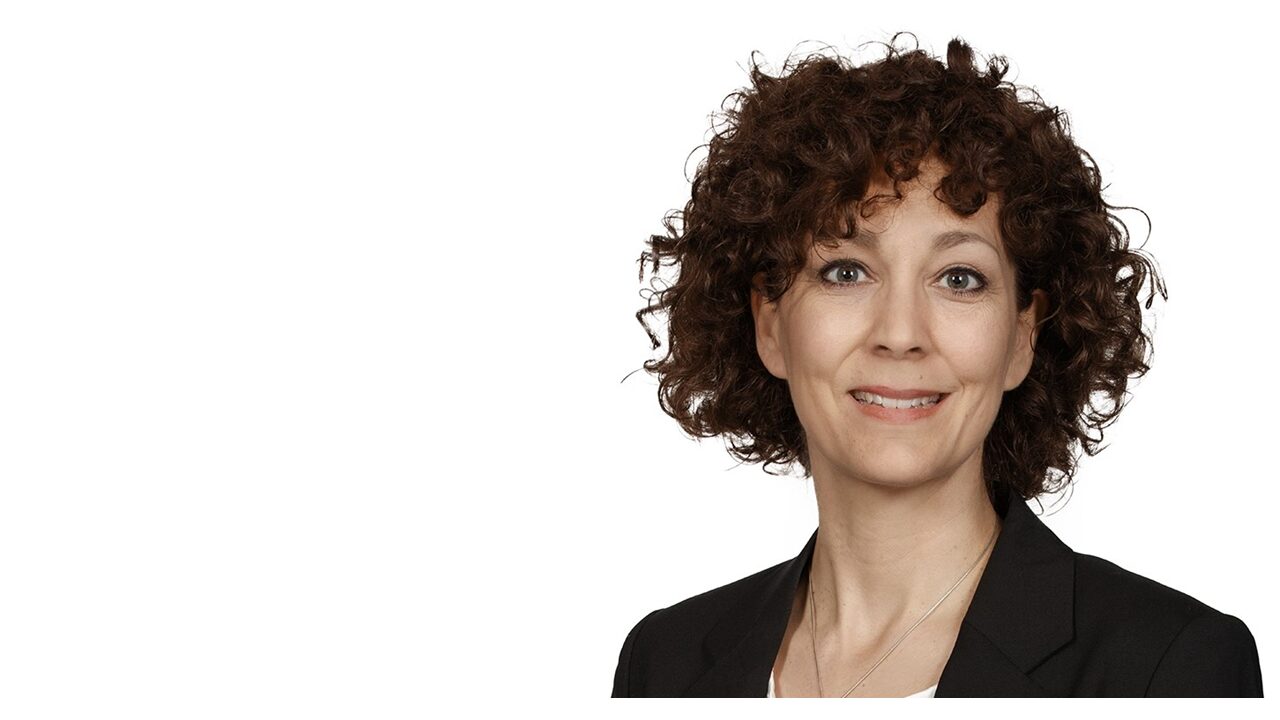Interview with Christina Meier Head of Sustainability at SBB
We asked Christina Meier about sustainability in the railway industry.
As Head of Sustainability at SBB, Christina Meier emphasises that sustainability is a key issue in the rail industry and stresses its importance for SBB in ecological, economic and social terms. She explains that SBB has made progress in climate protection, such as the replacement of fossil-fuelled heating systems in properties and the implementation of numerous environmental measures. Meier sees challenges for the future, particularly in terms of indirect emissions, where more sustainable materials and lower-emission rolling stock are needed. SBB relies on close cooperation with suppliers to promote sustainable standards and anticipates further regulations and requirements for the circular economy and the use of long-lasting chemicals.

As a major railway operator, how do you perceive the current importance of sustainability in the rail industry?
Sustainability is one of the major issues in the industry as a whole, if only because we have repeatedly received money for expansion projects in recent years due to the environmental benefits of the railway in Switzerland. The half-fare travelcard, the NRLA with the Gotthard Base Tunnel, the expansion of the Rail 2000 line and many other innovations only came about because an environmental problem was recognised in Switzerland that needed to be solved.
In addition to strengthening the environmental advantage, sustainability also has economic advantages for us: It is a selling point with customers, we as SBB can save money through the sustainable use of resources, we become more attractive as an employer and, last but not least, our licence to operate depends on it. It is therefore a very central aspect of our activities.
In your opinion, what are the current key sustainability issues for you as a major railway operator?
Social sustainability has always played a major role with the trade unions and, of course, the financial aspect. In the social sphere, the main issues are safety, health and diversity & inclusion. In recent years, however, the importance of environmental issues has grown. We operate a large infrastructure and have high energy requirements. Climate and energy are therefore our top priorities. However, as we also have a large material requirement, the circular economy is an important key to the future. Our construction activities have a major impact on habitats for people and nature. We therefore build to high sustainability standards and also promote biodiversity. Adaptation to climate change and sustainable procurement are also relevant topics.
How do you assess the development of the importance of sustainability in the industry?
The topic has gained in importance and all railways have made great progress in this area. We clearly see ourselves as a role model here. But the increasingly strict regulations alone mean that no one can escape it any more.
Where do you stand with the implementation of your sustainability strategy?
In the environmental area, we are focussing on climate & energy, the circular economy, sustainable construction, biodiversity, climate change and sustainable procurement. In general, we are making good progress and have initiated over 200 measures to promote sustainability. In the area of climate and energy, for example, we will replace oil and gas heating systems in all our properties with sustainable alternatives by 2030. We have already exceeded our planned reduction pathway for Scope 1 and 2 of the Greenhouse Gas Protocol.
The biggest challenge for us at present is to define a reduction path for Scope 3, which takes into account all indirect greenhouse gas emissions. It is clear that we need to start with the drivers concrete and metals. This means that rolling stock must also become lower-emission, but this can only be incorporated into procurement in the medium to long term. We are making progress with the circular economy and biodiversity, but there is still great potential. Here we are often dependent on the long investment cycles of the railway.
What do you see as the key sustainability issues of the future?
I assume that the issues that are currently important will continue to be of great importance in the future. However, issues such as the persistent chemicals PFAS (perfluorinated and polyfluorinated alkyl compounds) will also come more into focus. We still know little about some of these substances and first have to find out where they are used. We and the manufacturing industry will face new challenges here.
What expectations do you have of your external stakeholders in the upstream or downstream supply chain as part of your own sustainability requirements?
As part of our efforts to reduce our impact to Scope 3 level, the sustainability of our suppliers is important to us. We are currently working with the EcoVadis supplier assessment, which must be completed by our suppliers. However, we also have to include sustainability requirements in procurements, such as requiring green steel. In certain high-risk sectors, we work with additional audits.
What new requirements do you see facing the rail industry?
It is foreseeable that the federal government, as our owner, will require us to achieve the Scope 3 target of net zero by 2050. This may sound like a long time, but we have to get to work now. The demands on our suppliers will therefore also increase here. In the area of the environment, for example, one of the key issues for us is driving forward the circular economy. For example, a modular design helps to ensure that products can be repaired and reused in another form after their end of life, which in turn has a favourable effect on Scope 3 emissions.
Note on the translation: this text was translated using AI and checked by us. If you find any mistakes or something that is not clear, please let us know.
Discover interesting topics
- Vehicles
- Globally
- Nationally

- Sustainable mobility & digitisation

- Globally